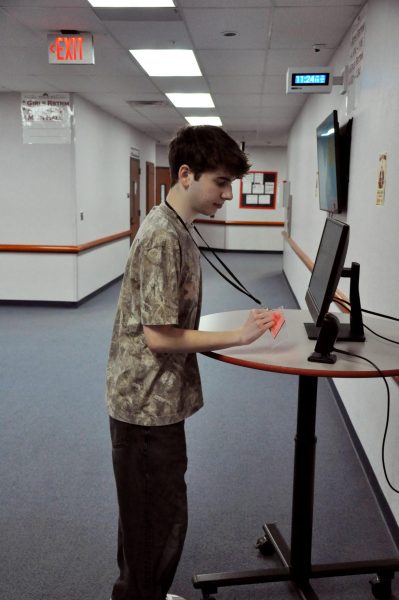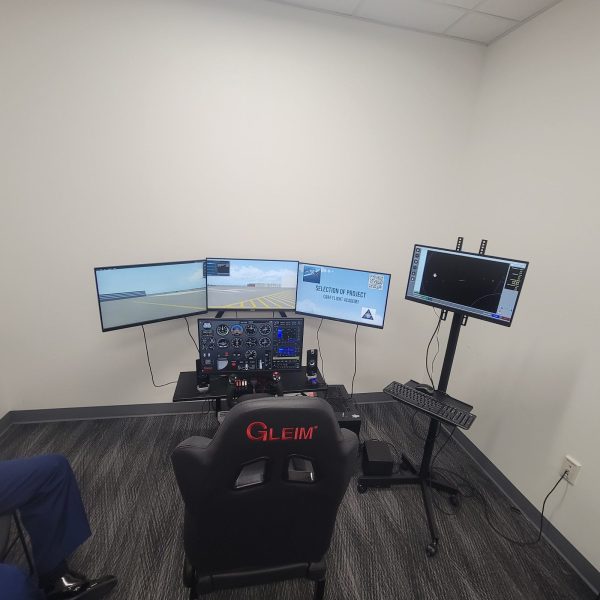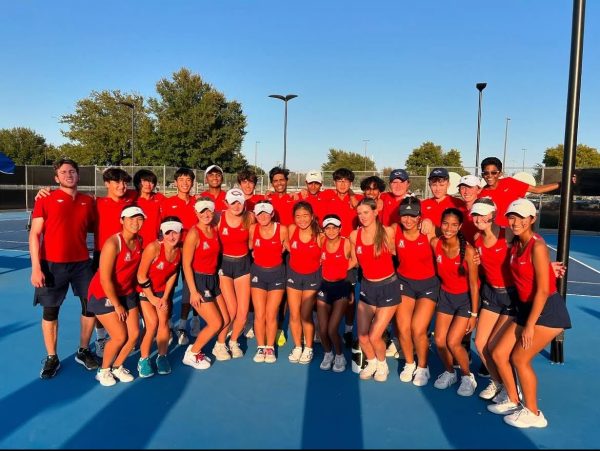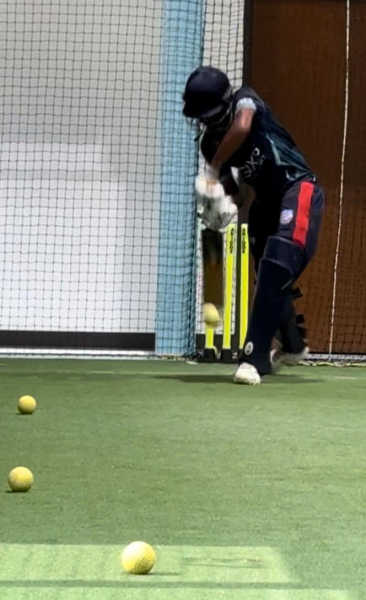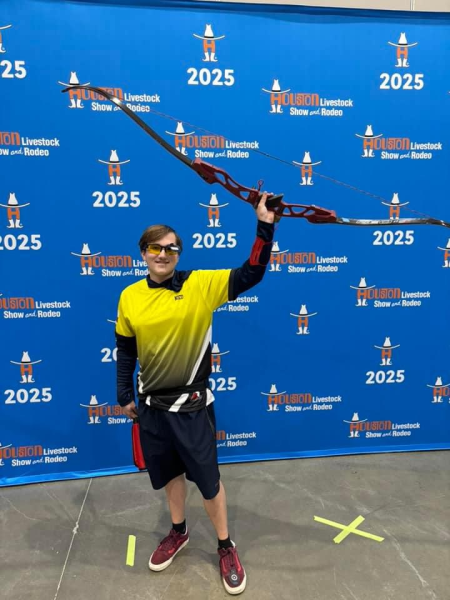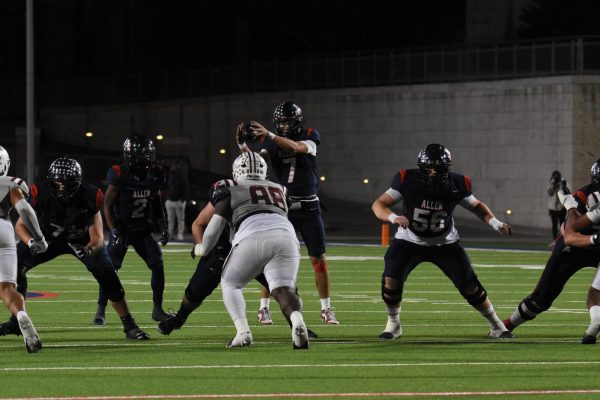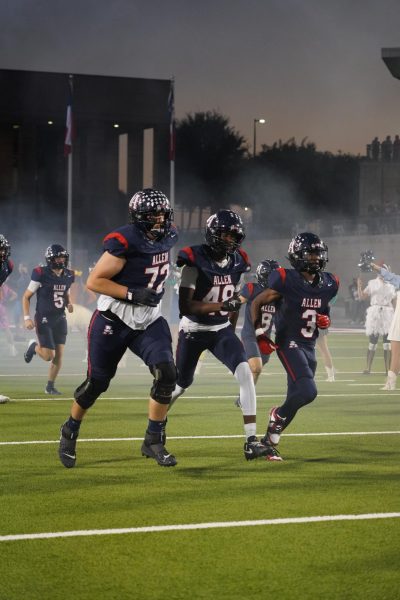Balancing Act
Student gymnasts reflect on their commitment to the sport
Junior Jenna Wicker wakes up around 7, and by 8 she’s at the gym practicing routines. After two and a half hours of training and a quick primping session, she slides into a desk at 11 to attend school until 3:35. At 4, she’s back at the gym practicing bars, beams, floor and vault. Rinse and repeat.
It’s the hectic schedule associated with being an elite gymnast while still in high school. Wicker, who trains at the World Olympic Gymnastics Academy (WOGA), has been enrolled in gymnastics since the age of 2.
“I train 36 hours a week,” Wicker said. “Gymnastics is kind of like my job, even though I’m paying to be there.”
WOGA, with locations in Plano and Frisco, is renowned for its level of rigor and has been producing famous Olympic gymnasts since 1994, including former Allen resident Carly Patterson, Nastia Liukin and Rio 2016 silver medalist Madison Kocian.
Junior Sydney Ewing, who also trains at WOGA, describes Kocian as a fellow teammate and mentor.
“I’ve known Madison since 2007, so watching her grow up and get through all the hard times and make it to the Olympics is probably the coolest part,” Ewing said. “[She] actually talked a lot to me about managing stress and taking deep breaths and knowing that I’ve trained so hard for this and to just keep positive in my head.”
Competitive gymnastics spans 10 levels, with a team competing at each level as well as an Elite team preparing for Olympic training. Competition season typically runs from January to May, although training is year-round.
The time commitment and competitive atmosphere of Level 10 gymnastics requires an unwavering passion for the sport that few possess.
“I love the feeling of winning,” Wicker said. “Even on tough days, I still love it. If I ever quit, I would be a whole different person.”
However, gymnastics isn’t without its challenges. The strict training schedule allows little time for any activities outside of gym and school, and the competition is intense.
“It’s really hard to manage school and gym and friends,” Wicker said. “But I love it so much that I have to make it work.”
For a select few, years of gymnastics can evolve into an Olympic career, but many gymnasts instead choose to continue their education by committing to college gymnastics. Ewing is already verbally committed to Michigan State University with a full athletic scholarship, a feat that can take years of research and determination.
College women’s gymnastics, introduced by the NCAA in 1982, is often less competitive than its elite counterpart, which Ewing cites as a benefit.
“College gymnastics is a lot more fun and less stressful,” Ewing said. “It’s for the team, not just for yourself.”
Junior Michel Koch, who was born and lived in Mexico until 2010, is aiming not only for a college scholarship but also to compete with the Mexican national gymnastics team.
She said that attending public school would not have been possible without the Off Campus PE program offered at AHS.
“I have three periods off and I’m able to do gym because of that,” Koch said. “Some other schools don’t let you take as much time off as this school does.”
The Off Campus PE program, offered at the middle school and high school level, allows students heavily involved in a sport that is not offered on campus to gain PE credit and miss up to one class period per day. To qualify for Category I of the program, a student has to train for 15 or more hours per week at a training facility approved by the district.
“Students and parents want their kids to be involved in the social side of high school,” Off Campus PE Coordinator Debbie Evans said. “There are opportunities here that aren’t available through homeschooling or at private schools.”
For students like Wicker, Ewing and Koch, who train up to six hours a day while attending school, it can be challenging to maintain a school schedule that fulfills the Texas Education Agency’s requirements while also allowing enough gym time.
“We work as well as we can within the rules,” Evans said. “As you get farther along in high school, you have off periods that can help you out.”
Even with the sacrifices, Ewing remains tirelessly committed to her sport.
“It’s a crazy journey, but in the end it’s worth it,” Ewing said. “I’ve noticed more and more throughout the years that it’s finally paying off.”

Senior Megan Shankle loves superheroes, procedural crime dramas and bookstores. She plans to study English at the University of Texas at Austin when she...



